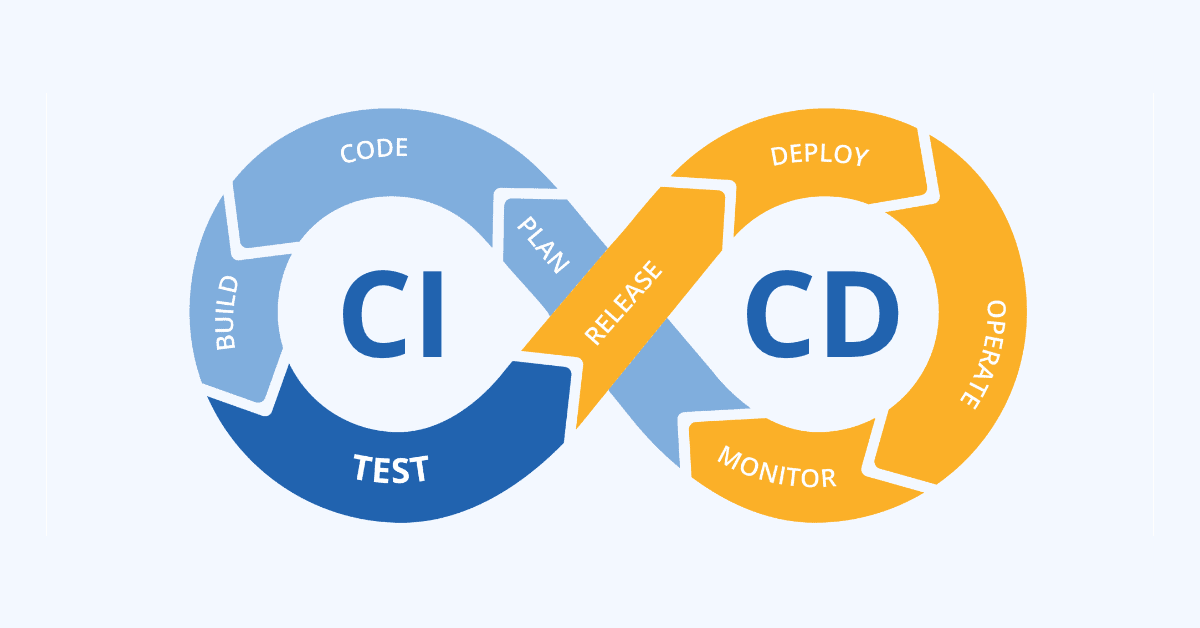The freelance landscape is evolving rapidly, with more professionals choosing to carve out their own paths in the vast realm of gig work. This seismic shift towards freelancing has made it imperative for newcomers and seasoned freelancers alike to navigate the common pitfalls that can hinder their career progression.
This article aims to shed light on actionable advice and strategies to sidestep these obstacles, ensuring long-term success in the freelance world.
Not Defining Your Niche
Understanding Your Strengths
In the vast sea of freelancing, understanding and focusing on your strengths is not just beneficial; it's essential for survival and success. The freelance market is saturated with talented individuals, each vying for attention and work. In such a competitive arena, the importance of identifying what you excel at cannot be overstated. This introspection and self-awareness allow you to present yourself as an expert rather than a jack-of-all-trades. Clients are increasingly looking for specialists who can solve specific problems or fulfill particular needs with a high level of expertise and efficiency. By honing in on your strengths, you differentiate yourself, making it easier for those clients to find and trust you with their projects.
Benefits of Specialization
Specializing in a specific niche does more than just set you apart; it opens the door to better clients and higher-paying projects. When you focus on a particular area, you can dive deep into the subject matter, becoming an authority in your niche. This expertise enables you to deliver superior quality work, which, in turn, justifies higher rates. Moreover, a defined niche makes your marketing efforts more straightforward and more effective. Your messaging can be tailored to speak directly to your ideal client's pains and desires, attracting those willing to pay a premium for your specialized services. In essence, specialization helps in creating a strong, recognizable brand that stands out in a crowded marketplace.
Failing to Set Clear Contracts and Expectations
The Role of Contracts
Contracts are the backbone of any freelance project. They are not just formalities but essential tools that protect both you and your client. A clear, written contract ensures that there is a mutual understanding of the project scope, deadlines, deliverables, and payment terms. It acts as a legal safeguard against scope creep, late payments, and other common issues that can arise during a project. Moreover, a contract can help in setting the professional tone of your relationship with the client, demonstrating your seriousness about your business and their project. In the absence of a contract, disputes are harder to resolve, and freelancers may find themselves at a disadvantage, having to rely on goodwill rather than agreed-upon terms.
Setting Expectations
Effectively communicating with clients about the project's scope, timelines, and deliverables is crucial for a successful freelance engagement. Clear communication from the outset helps to set realistic expectations on both sides and can prevent misunderstandings and dissatisfaction down the line. When discussing a new project, be explicit about what is included in your service, how long tasks will take, and what the final deliverables will look like. Regular updates and check-ins can also help keep the project on track and build trust with your client. Tips for setting expectations include using a project brief, agreeing on milestone deliverables, and being clear about any assumptions or prerequisites needed for the project's success.
Underpricing Your Services
Understanding Your Value
One of the most common pitfalls for freelancers is underpricing their services, often due to a lack of understanding of their own value. Evaluating your skills and experience to set competitive rates is crucial for a sustainable freelance career. Strategies for understanding your value include benchmarking against industry standards, considering your educational background and specialized skills, and evaluating the complexity and scope of your projects. Additionally, take into account your operational costs and the value you bring to your clients. Remember, competitive pricing isn't just about being the cheapest option; it's about setting rates that reflect the quality and value of your work, ensuring you are fairly compensated.
Raising Your Rates
As your skills and experience grow, it's natural and necessary to raise your rates. However, many freelancers hesitate to do so for fear of losing clients. To increase your prices without alienating your client base, communicate openly and provide justification for the rate increase. This could be due to your enhanced skill set, increased costs of doing business, or inflation. Offering existing clients a grace period before the new rates take effect can help ease the transition. It's also beneficial to regularly review and adjust your rates, ideally on an annual basis, to ensure they reflect your current market value.
Poor Time Management
Time Management Techniques
Effective time management is critical for freelancers to meet deadlines, maintain work-life balance, and avoid burnout. Strategies like the Pomodoro Technique, where work is broken down into intervals (traditionally 25 minutes in length) separated by short breaks, can boost productivity and focus. Time blocking, another useful technique, involves allocating specific blocks of time to different tasks or projects throughout the day, helping freelancers to manage their tasks more efficiently. Utilizing digital tools like calendar apps, to-do lists, and project management software can also help in keeping track of deadlines and priorities.
Balancing Multiple Projects
Juggling multiple projects is a common challenge for freelancers. To effectively balance a varied workload without sacrificing quality or well-being, it's important to prioritize tasks based on urgency and importance. Use a project management tool to visualize all your projects and deadlines at a glance. Setting clear boundaries between work and personal time is also crucial to prevent burnout. Additionally, learn to say no to new projects if your schedule is already full, and consider outsourcing or delegating tasks that are outside your core competencies or take up too much time. Remember, maintaining a high quality of work and your health is more important than taking on every project that comes your way.
Neglecting Financial Planning
Financial Stability
Financial stability is a cornerstone of a successful freelance career, yet it's an aspect often neglected by many. The importance of budgeting cannot be overstressed. A well-thought-out budget helps you understand your income needs, manage your expenses, and save for future goals. It's also vital to save for taxes, setting aside a portion of each payment to avoid a large tax bill at the end of the fiscal year. Planning for lean periods is another critical component of financial stability. Freelancing can be unpredictable, with income fluctuating from month to month. Building an emergency fund that covers 3-6 months of expenses can provide a buffer during times of reduced income, ensuring you can meet your financial obligations without stress.
Investing in Growth
Investing in your freelance business is crucial for long-term success and growth. Allocating resources towards professional development can keep your skills sharp and your services competitive. This could include attending workshops, enrolling in courses, or obtaining certifications relevant to your field. Investing in tools and technology can also enhance your efficiency and the quality of your work, allowing you to take on more complex projects or work more efficiently. Lastly, don't overlook the importance of marketing. Investing in marketing—whether through improving your website, optimizing your social media presence, or attending networking events—can increase your visibility to potential clients and help you secure more work. Balancing these investments with your immediate financial needs can be challenging, but it's essential for building a sustainable and thriving freelance career.
Not Investing in Self-Promotion
Building Your Brand:
The creation of a strong personal brand and a compelling online presence is indispensable in the digital age for attracting high-quality clients. Your personal brand is what sets you apart from the competition, showcasing your unique skills, experiences, and values. A robust online presence, from a professional website to active social media profiles, acts as a portfolio that clients can assess. It speaks volumes about your professionalism and the quality of work potential clients can expect. By consistently presenting your brand across various platforms, you enhance your visibility and credibility, making it easier for clients to trust and choose you for their projects.
Networking and Marketing:
Effective networking and marketing are crucial strategies for expanding your reach and securing more work. Networking can be both online, through platforms like LinkedIn, and offline, in industry conferences and meetups. Engaging with your peers and potential clients through these channels can lead to valuable opportunities and collaborations. Marketing your services effectively involves understanding your target audience and how best to communicate your value to them. This could mean refining your website for SEO, utilizing social media marketing, or even content marketing by blogging about topics relevant to your niche. The goal is to be where your potential clients are, making it easy for them to find and hire you.
Ignoring Client Feedback
Learning from Feedback:
Soliciting and learning from client feedback is essential for any freelancer aiming to improve their services and client satisfaction. Feedback helps you understand your clients' needs better, adjust your approach, and improve the quality of your work. Actively seeking feedback, whether through direct communication post-project or through follow-up surveys, shows clients that you value their opinion and are committed to delivering the best possible service. Positive feedback can be used as testimonials to attract more clients, while constructive criticism provides valuable insights for personal and professional growth.
Handling Negative Feedback:
Receiving negative feedback is inevitable, but it's how you handle it that defines your professionalism and growth mindset. The best approach is to listen openly, without becoming defensive, to understand the client's perspective. Acknowledge any mistakes made and discuss ways to rectify the situation or prevent it in the future. Learning from negative feedback is an opportunity to refine your processes and improve your skills, ultimately leading to better client relationships and a stronger portfolio.
Overlooking Professional Development
Continuous Learning:
The freelance market is continuously evolving, with new tools, technologies, and industry trends emerging regularly. Staying updated with these changes is crucial for maintaining a competitive edge. Continuous learning can take many forms, from online courses and webinars to reading industry publications and attending workshops. Investing time and resources into learning not only enhances your current skill set but also enables you to offer more value to your clients and charge higher rates for your specialized knowledge.
Professional Growth Opportunities:
Actively seeking out professional growth opportunities is vital for any freelancer looking to advance their career. This could mean pursuing formal certifications that validate your expertise, attending workshops and conferences to network with peers and learn from industry leaders, or even teaching and mentoring others in your field. Each of these opportunities not only contributes to your professional development but also enhances your reputation and visibility in the industry, attracting more clients and projects your way.
Conclusion
Avoiding common freelance mistakes requires a proactive approach, from understanding your unique value proposition to investing in your professional development. By addressing these key areas, freelancers can build a sustainable, fulfilling career path that not only meets their financial needs but also allows for continuous growth and learning. Embrace the journey with resilience and adaptability, and the freelance world will offer endless possibilities.
FAQs
1. How can I determine the right pricing for my freelance services?
Evaluate your skills, experience, and the market demand for your services. Research what peers in your niche are charging and adjust your rates based on your unique value proposition and client feedback.
2. What should be included in a freelance contract to protect my interests?
A comprehensive freelance contract should include project scope, deadlines, payment terms, confidentiality clauses, and terms for terminating the contract, among other specifics tailored to the project.
3. What strategies can I use to maintain financial stability as a freelancer?
Implement a strict budget, set aside a percentage of each payment for taxes, create an emergency fund, and diversify your income streams to mitigate the risks of fluctuating income.
4. How important is personal branding for a freelancer, and how can I build mine?
Personal branding is crucial for standing out in the freelance market. Build yours by maintaining a professional online presence, sharing your expertise through blogs or social media, and networking.
5.What are the best ways to market my freelance services to potential clients?
Utilize a mix of online and offline marketing strategies, including SEO, content marketing, social media engagement, and networking events to increase your visibility.
6. What tools and resources are essential for a successful freelance career?
Essential tools include project management software, financial tracking apps, communication platforms, and industry-specific tools for tasks such as graphic design, writing, or programming. Continuous learning resources like online courses and workshops are also vital.





